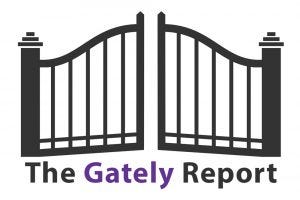The REvil ransomware gang has been shut down in a Russian raid.

Ascending to the Nasdaq 100, Palo Alto Networks is in a strong position to help its channel partners gain new opportunities and prosper in 2022.
 That’s according to Karl Soderlund, Palo Alto Networks’ senior vice president of worldwide channel sales. The cybersecurity vendor works with resellers, distributors and MSSPs.
That’s according to Karl Soderlund, Palo Alto Networks’ senior vice president of worldwide channel sales. The cybersecurity vendor works with resellers, distributors and MSSPs.
Palo Alto Networks recently joined the Nasdaq 100. It’s the top 100 largest domestic and international non-financial companies on the Nasdaq exchange based on market capitalization. The vendor was added as part of the index’s annual reconstitution.
In addition, Palo Alto Networks has joined the Microsoft 365 Networking Partner Program to provide direct and efficient connectivity for Microsoft 365 users. This is through its Prisma Access service, facilitating what the company calls an optimal user experience aligned with Microsoft’s connectivity principles.
What’s In Store For Palo Alto Networks Channel Partners in 2022

Palo Alto Networks’ Karl Soderlund
In a Q&A with Channel Futures, Soderlund talks about these developments and what’s in store for partners in 2022.
Channel Futures: What’s the significance of Palo Alto Networks joining the Nasdaq 100? What does it mean to partners?
Karl Soderlund: It means a lot to us, we’re really proud to join the Nasdaq 100. Many of our customers and our partners are among the great companies that participate. We believe the inclusion of Palo Alto Networks really reconfirms our transformation to being the cybersecurity partner of choice for organizations around the globe. So we’re very proud and happy to be to be part of that.
CF: How will partners benefit from Palo Alto Networks joining the Microsoft 365 Networking Partner Program? Does it create new opportunities for them?
KS: It will absolutely benefit our partners. The reality is with how massive the Microsoft 365 base is out there. The opportunity to increase our customers’ security posture is at record levels and the need is there. So being part of this partner program will give us that opportunity to meet that need. There’s a great opportunity for our partners to not only promote this into their customer base, who are Microsoft environments, but also look at other opportunities beyond that. So whether it be inclusive of adding services to it, looking at other areas to protect and secure the network, it’s just another opportunity for our partners to come in with a world-class solution with two world-class partners that are together.
Scroll through our slideshow above for more from Soderlund and more of this week’s cybersecurity news.
Want to contact the author directly about this story? Have ideas for a follow-up article? Email Edward Gately or connect with him on LinkedIn. |
About the Author(s)
You May Also Like


